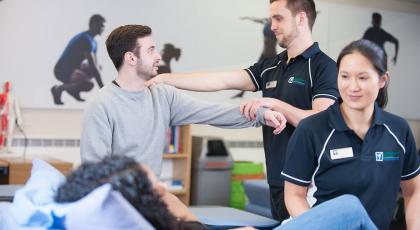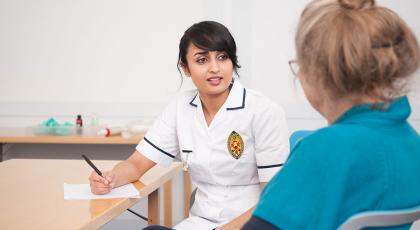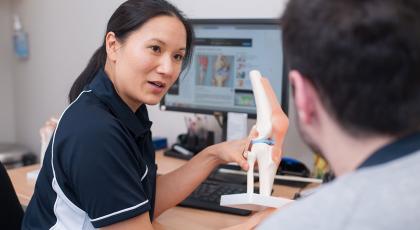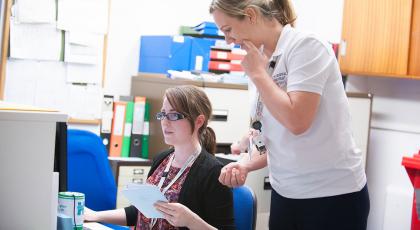Use this section to get clear on what evidence-based practice means.
What is evidence-based practice?
There is much debate on this question. One useful definition is:
'Evidence-Based Practice (EBP) requires that decisions about health care are based on the best available, current, valid and relevant evidence. These decisions should be made by those receiving care, informed by the tacit and explicit knowledge of those providing care, within the context of available resources'
Find out what EBP means and why there is so much debate about it

Why is evidence-based practice important?
EBP is important in order to underpin and shape how the profession delivers patient care. It promotes the value and impact of UK physiotherapy’s contribution to meeting population and patient needs in clinically and cost-effective ways and inform the development of physiotherapy practice, service delivery and education, and physiotherapy’s development as a workforce.
It helps progress the profession’s approach to developing, using and promoting research and its contribution to generating new evidence, knowledge transfer and service improvement.

What is evidence?
Evidence is defined as: 'the available body of facts or information indicating whether a belief or proposition is true or valid' and 'data on which to base proof or to establish truth or falsehood'.
Applying this to evidence-based clinical practice, it could be described as the available body of facts, information or data on which to base a clinical decision.

Why are you looking for evidence?
Typically, you’ll have a specific question that you’re looking to answer, or you'll just want to keep your practice up to date on what’s happening in your field. Different questions need different types of evidence and this will affect how you structure your question and search strategy.
You can keep up to date through individual EBP or networking which can be in person or remotely. They have different advantages and disadvantages.

Sources of evidence
When looking for evidence, there are many sources you can use, including academically or commercially published evidence, grey literature (information produced by organisations which are outside the commercial or academic publishing and distribution channels such as government papers) and databases.

How good is the evidence?
Once you've found your evidence, you need to analyse it in order to determine whether it is fit for purpose. You need to know if you can trust the information, what the quality of the research that has been undertaken is, and whether the findings may be biased in some way.
There are a number of tools and checklists that have been developed to make sure you evaluate the evidence in a systematic way.




































